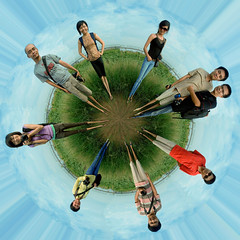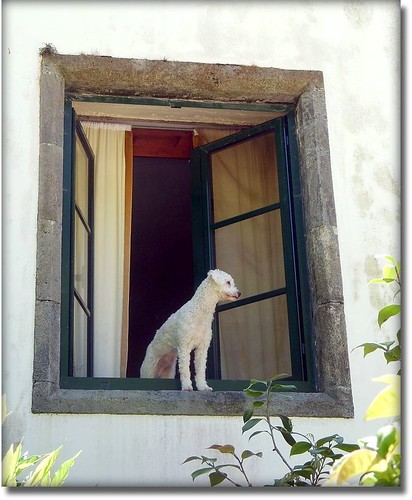 I bemoan the fact that there is so much good stuff floating by me. Thank goodness for friends and colleagues like Stephen Downes who filter and share via newsletters and Twitter. Here is a sampling of stuff that has caught my eye, and why. Most from Stephen’s OLDaily – or interestingly – found both elsewhere then seen on OLDaily, which serves as a beacon of “pointing light” for me to see something twice.
I bemoan the fact that there is so much good stuff floating by me. Thank goodness for friends and colleagues like Stephen Downes who filter and share via newsletters and Twitter. Here is a sampling of stuff that has caught my eye, and why. Most from Stephen’s OLDaily – or interestingly – found both elsewhere then seen on OLDaily, which serves as a beacon of “pointing light” for me to see something twice.
- Howard Rheingold talks (via multiple modes) about participatory learning. (Howard tweeted this!) – note the combination of video/voice and text. How does it feel to you? I like it.
- Jay Cross on performance support in a web 2.0 world http://informl.com/2008/08/24/whatever-happened-to-performance-support/ What I appreciate about this is the historical peek back to performance support as a bridge to understanding the value of new tools. This sort of context provides good “splainin!” (Lee LeFever has also been writing about the value of explanation.) (pointer from Stephen)
- Stephen again pointing to this paper on mapping pedagogies and technologies – http://www.ariadne.ac.uk/issue56/conole/. New Schemas for Mapping Pedagogies and Technologies.
“Gráinne Conole reflects on the implications of Web 2.0 for education and offers two new schemas for thinking about harnessing the potential of technologies.” This article interests me because of the work John Smith, Etienne Wenger and I have been doing about mapping technologies to community of practice activities. (And yes, the book IS coming along – at the designers now!) My experience is that mapping is a “first swipe” and then, context rules. - The continuing evolution and path of Leigh Blackall’s course “Facilitating Online Communities” – both visible on the wiki http://www.wikieducator.org/Facilitating_online_communities and in the other blogs, Google Group, etc. They are not only learning about the topic, they are figuring out what happens when you open a Polytechnic’s course and 100 people show up. It was also great to meet Leigh F2F in Wellington last week. I think I threw him off when I greeted him with a big hug. Oh, that darn American behavior! Some of the things that I’m finding interesting as I lurk include how Leigh is teaching/facilitating, the impact of a group that includes some folks I’d put both at the expert and novice range of experience with teaching and online community, how the group straddles (John Smith’s favorite word) the various technologies that Leigh has offered and of course, the amazing reflections in people’s blogs. This reinforces for me the deep value of making time for reflective practices. Slow down!
- Again, from Leigh’s presentation at DEANZ 08 in Wellington, how his talk on “Inverted IP Policy” has helped me see the issue of IP in educational and organizational settings in a new light. I think this is also related to my earlier post today about why people contribute things to the public good. It has been interesting to see some of the blog ripples from Leigh’s talk and sharing of the content.
- Via I don’t know where, this cool site for sharing some of the photographs of Walker Evans. http://www.afterwalkerevans.com/images7.html. Evan’s was a depression era photographer from the south and the study of his work and that of writer James Agee was a profound part of going to University in the US South for me (Duke.) More on Evan’s here.
- From my World Cafe Girl Geek friends, a pointer to the work of Franke James – wow, great visual thinking.
- Kerry’s “Coveritlive” coverage of the Mind of Matter seminar in Australia. I’m interested both in the subject matter of how technology is affecting our brains (and vica versa, to be honest) and the tool Kerry used, Coveritlive. I have been meaning to check that out. Stephen also pointed to this, but Kerry had also emailed a notice. This was one of those “twice pointed out” items!
- A mention of a post on Mike Coughlan’s blog reminded me it was time to visit. Always good stuff.
- Luis Gutierrez emailed me about Nuptial Dimension of Sustainable Development – Part 4 Solidarity, Sustainability, and Nonviolence, V4 N8 August 2008 http://pelicanweb.org/solisustv04n08.html. I haven’t read it yet, but I have been thinking a lot about alternatives to traditional development processes so I have this bookmarked to come back to. Luis was also looking to spread the word. This also connects to a George Siemen’s post about the roots of “connectivism” – I haven’t sorted it out in my brain yet, but I think there is a deep connection between what George is writing about and these alternative development paths that are intrinsically of a network nature. Also, to another article pointed out by Stephen on the relationship between learning and poverty.
- Barry Dahl talks about the “back channel” at conferences (this time at Desire2Learn where I keynoted last year but have not been tracking this year.) In Wellington at DEANZ we talked about “that which is not always visible” but which matters. Things like twitter are starting to make the invisible visible. What are the ramifications? When is some good, but too much is destructive?
Yikes, this might be enough for one post. I have a list of about 20 other URLs I want to blog about. Hehe. I said today to my walking buddy, it would be nice to have a fairy godmother drop out of the sky and fund 3 months for contemplation, 3 months for catching up and three months more for writing about it!
 Last week I wrote about
Last week I wrote about 
